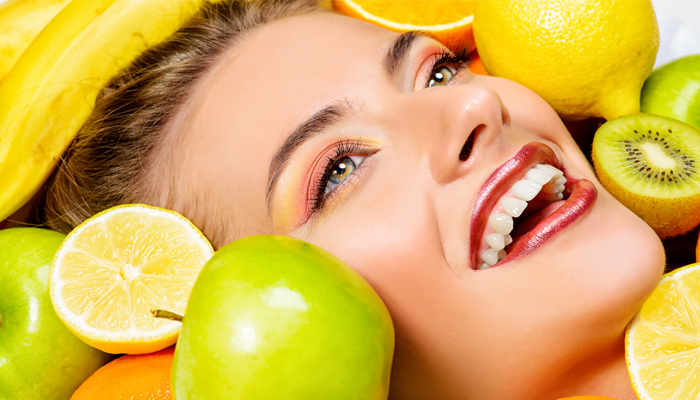Acne is a very common condition caused by the clogging of acne pores with sebum and dead skin cells. This leads to inflammation and the acne lesion eruption. There are three main types of acne: acne vulgaris, acne rosacea, acne conglobata. This condition can be triggered by environmental factors such as pollution, stress, genetic factors, hormonal changes in the body, diet and acne medications.
If you’ve developed acne and wish to minimize your risks of developing unsightly acne scars or just prevent mild acne from becoming severe, your best bet would be to get timely acne treatment. Singapore boasts of well-trained and experienced dermatologists who can provide you with the best acne treatment and care so it is certainly one of the treatment destinations to have on your wishlist.
Acne lesions are commonly made of comedones (also known as blackheads or whiteheads), pimples, pustules, papules, cysts and even nodulocystic acne if severe. Symptoms may vary but some of the most common ones include;
- An inflammation on the skin
- Pain
- Swelling
- Heat
- Redness
- Dark spots or acne marks
The most common areas where acne appears are the face (especially the forehead and cheeks), neck and chest area. Acne is not an infectious disease, but it can lead to secondary infections such as folliculitis (inflammation of hair follicles).
Treatments: Acne is not a life-threatening condition, but untreated acne can last for long periods of time and further lead to scars on the skin, which could be permanent. There are several acne treatments depending on acne severity, e.g. non-prescription medications: over-the-counter topical creams with salicylic acid or benzoyl peroxide; oral medications: antibiotics (tetracyclines like minocycline), vitamin A derivatives (retinoids like isotretinoin) etc.; in serious cases, Accutane may be prescribed.
Detection is made by acne lesions characteristics, but acne is usually diagnosed based on acne severity and acne lesion distribution. Acne is a condition that leaves acne scars that could last for a long time if not properly treated; hence it’s advisable to consult your surgeon or dermatologist to have all acne marks removed by proper acne scar treatment.
How can I clear up acne Fast?
This question is difficult to answer because the acne removal process could take a long time, depending on acne severity. However, there are several tips that you can apply to reduce acne lesions and clear up acne fast, e.g. using skin pharmaceuticals: creams with benzoyl peroxide or salicylic acid; avoiding face touching; washing the face often etc.
10 Dos and Don’ts for Acne Treatment
- Do wash your face at least twice a day, especially after exercise if you work out regularly: It is advisable to wash acne-prone skin 2 to 3 times a day with acne-specific cleansers and avoid touching your acne as much as possible, even if your acne symptoms are not too severe.
- Do use benzoyl peroxide or salicylic acid creams: Drugstore remedies containing acne medications such as benzoyl peroxide help fight acne symptoms by drying out the oil on the surface of the skin. These should be used under the direction of a certified dermatologist to avoid over-drying of the skin. Creams containing salicylic acid also help in unclogging pores, but it could cause dryness, so moisturizers must be applied after washing acne-prone skin.
- Do apply acne products containing benzoyl peroxide or salicylic acid in the morning and not at night: It is advisable to use topical acne medications in the morning because sunlight could cause skin dryness that leads to increased acne risk. However, do avoid sun exposure when using acne creams, and then wash your face with gentle cleansers after application.
- Don’t pick acne lesions but don’t use makeup on them either: Acne lesions must be treated very gently with proper acne treatment; otherwise, it would lead to scarring of the skin, which might last for a long time, or even permanent acne scars. It is advisable to consult with a doctor before wearing makeup, especially on acne lesions, so they could give you advice on acne scar treatment too.
- Do remove acne marks by approved acne scar removal treatments: Acne scars are acne lesions that are left on the skin after acne symptoms have disappeared; hence acne marks should only be removed by acne mark removal treatments. There are several ways on how to remove acne scars, e.g. laser resurfacing, dermabrasion, chemical peels, fractional photothermolysis etc., but acne scars could be permanent if not treated properly or in time, so it’s recommended to consult your surgeon or dermatologist before you start treating acne scars. Only a qualified doctor can give you advice on proper facial rejuvenation surgery depending on your condition and budget, too, of course!
- Do apply sunscreen with at least SPF 30 at least every morning: Sunlight could cause acne breakouts if your skin is acne-prone, so it’s very important to protect acne-prone skin from the sun by applying sunscreen with SPF 30 or more before going out, especially in high-sun exposure times, e.g. between 10 am and 2 pm. It is also advisable to apply sunscreen regularly during the winter months too because even indoor UV rays can quickly damage acne-prone skin.
- Do eat acne friendly food: Certain kinds of foods may aggravate Acne-prone skin, e.g. chocolate, fatty foods etc., so it is advisable to avoid acne unfriendly foods and acne flares up by acne treatment if acne symptoms are severe. However, a well-balanced nutritious diet containing acne-friendly foods such as green vegetables, fruits, whole grains can help reduce acne symptoms! Of course, each case is different, so dietary habits should be monitored carefully. Avoid alcohol and smoking because they could also cause acne outbreaks by increasing serum cortisol levels (stress hormone).
- Don’t touch your acne lesions as much as possible: Even though acne lesions are not so bad when acne symptoms appear, acne flares up if acne lesions are touched by hands or fingers. This may lead to acne lesions getting worse.
- Do avoid acne aggravating factors such as stress: It is also advisable to avoid aggravating factors like stress because it causes acne outbreaks in acne-prone skin even in adults, especially if they keep working for too long without taking a break at all or pressure from work commitments etc.
- Do take acne treatment seriously if acne symptoms are severe: If acne symptoms are not light, acne treatment should be taken very seriously by consulting a dermatologist to start your acne treatment in Singapore as soon as possible because acne could be treated rather successfully in the early stages when acne lesions appear red and swollen.
The Bottom Line
It is also advisable to relax and observe your skin condition before starting any acne treatment in Singapore, especially when you get pimples here and there, e.g. acne bumps. Don’t panic because acne outbreaks are common, especially in teens and young adults, so acne treatment is often needed to relieve acne symptoms if acne treatments do not work well enough!
Here’s the review from Singapore bloggers from Singapore Top Medical Review site Ubiqi. It’s imperative to start acne treatment by consulting your dermatologist instead of trying home remedies because home remedies may not be suitable for your skin type at all. At One Face skin and Aesthetic clinic, we offer acne treatments that suit all skin types. Contact One Face at +65 6222 2262 to start acne treatment immediately!
One Face Skin & Aesthetics Clinic
1 Tras Link, #02-01 Orchid Hotel, Singapore 078867
+65 6222 2262


Comments are closed.